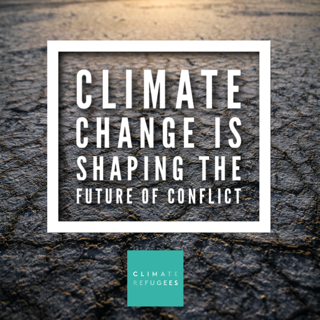Climate Change Is Shaping the Future of Conflict
In a UN Security Council Aria Meeting on the 50th anniversary of Earth Day, the International Crisis Group’s (ICG) President Robert Malley addressed the body, stating that absent global action, climate change could be a slow-moving version of the current COVID-19 pandemic. The climate change conversation, he said, is at an inflection point after decades of the Intergovernmental Panel on Climate Change documenting trends that can initiate or exacerbate violence. He cautioned that peace and security actors should neither overstate nor understate the role of climate change in conflict but certainly, climate change, on its own, puts vulnerable populations at increasing risk. Although data suggests a 10-20% risk of armed conflict associated with every half-degree rise in local temperatures, understanding the precise relationship between climate and conflict is necessary for sound policy prescriptions. Experts may debate details within the findings but there is wide consensus that climate change has an impact on food security, water scarcity, livelihoods, resource competitiveness and can spur migration of “environmental refugees”, all of which can, in turn, play a role in conflict. Malley noted that climate-related conflicts reside in two categories: 1. internal conflicts due to resource-scarcity as seen in Nigeria, where conflicts have risen between herders and farmers, stretching a military already responding to Boko Haram - something we can certainly echo based on our own research on climate displacement in Nigeria and the Lake Chad Basin (see report below) - and 2. conflicts between states over scarce resources, notably water, as seen in the transboundary water conflicts around the Nile river basin. He concluded, noting the impacts COVID-19 may have on the politics of climate change as economic losses constrain resources and recent drops in oil prices distract investments in renewable energy. (ICG)


